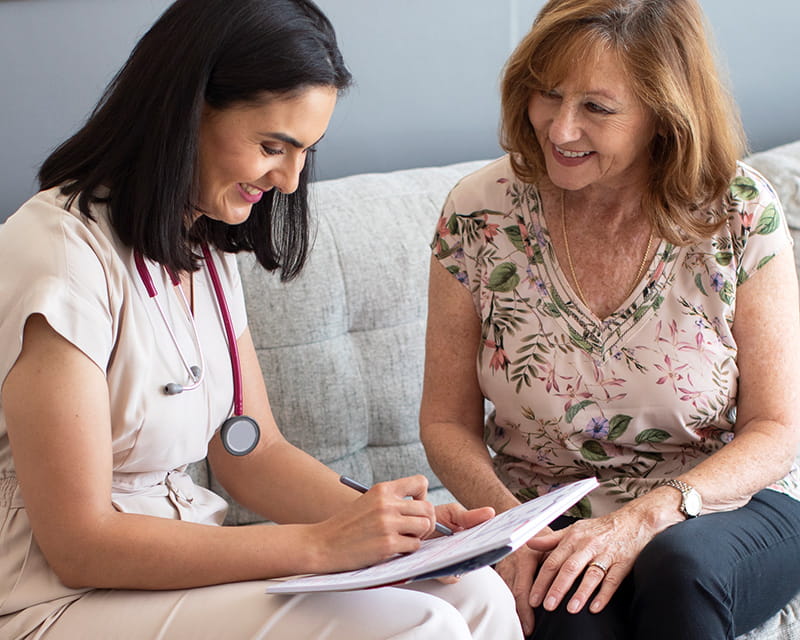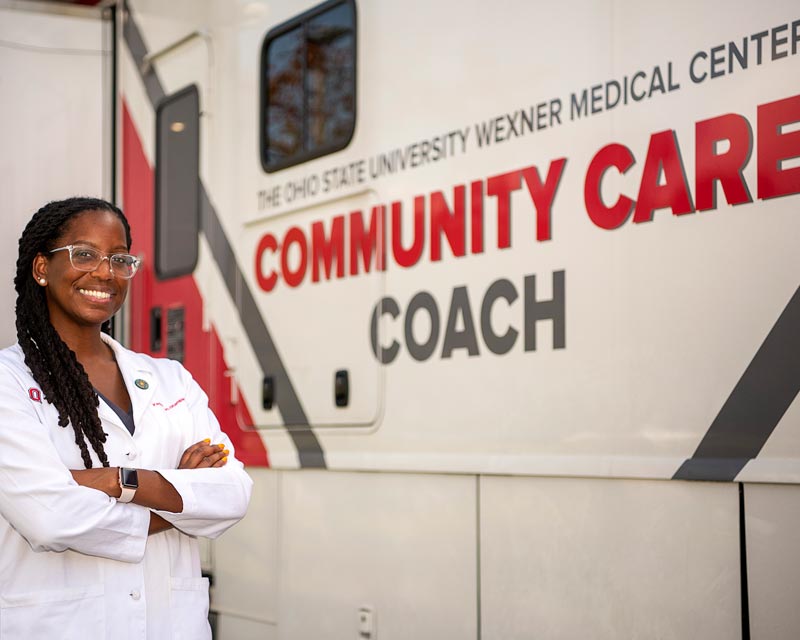
Improving care for menopausal women across all specialties
 Obstetrics and gynecology service added to mobile health care unit, taking needed services into the community
Obstetrics and gynecology service added to mobile health care unit, taking needed services into the communityThe Ohio State University Wexner Medical Center Community Care Coach, a state-of-the-art health unit on wheels, now offers prenatal and postpartum care to those who need it.
This community-based approach is part of a larger effort by the Ohio State Wexner Medical Center Department of Obstetrics and Gynecology to improve women’s health and decrease infant mortality.
Kamilah Dixon, MD, an obstetrics and gynecology specialist with the Ohio State Wexner Medical Center who’s leading the mobile Ob/Gyn effort, says the addition of prenatal and postpartum care to this traveling health unit fills a gap and could be a huge help for uninsured or underinsured moms and moms-to-be.
“We know there’s a large subset of patients who enter prenatal care too late, or who don’t have prenatal care at all during their pregnancy,” Dr. Dixon says. “This can increase the risk for pre-term delivery and infant mortality.
“And even after pregnancy, we notice many patients lack access to postpartum or even primary care. Connecting patients to care before and after delivery is critical.”
Dr. Dixon says social determinants of health affect many in need of health care. These social determinants can include access to transportation, nutritious foods and opportunities for physical activities — but they may also take the form of racism or discrimination, which can prevent people from seeking the care they need.
“What drives me to go to work every day is to make sure I’m serving the community in the best way possible,” Dr. Dixon says.
Adding Ob/Gyn services on the Ohio State Wexner Medical Center Community Care Coach is one way to meet the needs of people and communities that may be impacted by social determinants of health. But Dr. Dixon says there’s more that can be done.
She and colleagues are looking inward to inspire change.
“Black women are three to four times more likely to die during childbirth than white women,” Dr. Dixon says. “We know that disparities like these are entrenched in structural racism. It’s a passion of mine to make sure we talk about this.”
To bring more awareness to disparities in care, in June 2021 Dr. Dixon launched an anti-racism book club. Intended for her health care colleagues and completely voluntary, the book club attracted 25 people to its first meeting.
“Our approach is to read about existing disparities and learn from one another,” Dr. Dixon says. She acknowledges that the initiative is quite distinct from work on the Community Care Coach but sees the efforts as inextricably linked.
“It is incredibly tough to hear stories of people who feel they haven’t been treated with respect and dignity, or that they’ve been alienated because of their race,” Dr. Dixon says. “We know these experiences prevent people from accessing care, and ultimately lead to worse outcomes. These are things that we as Ob/Gyns need to understand about ourselves and others so we can take action.”